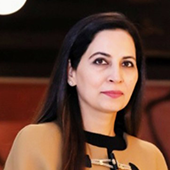Can You Make Baby Formula With Distilled Water
Key Pointers
- You must consider the safety and quality aspects of the h2o to mix with baby formula.
- Tap water quality is tested past the US Environmental Protection Agency (EPA) in the US. It is considered safe for drinking, and you lot may gear up formula milk with it.
- If you are unsure about the tap water, you may boil and cool it before preparing formula milk.
- Bottled water may also be used, only make certain to check the sodium and sulfate levels. Distilled water is also a safe alternative.
It is normal for many caregivers and parents to look for the best water for baby formula. Preparing baby formula is a complex process, and selecting the right water to mix tin be challenging since many water sources may non be safe for the niggling ones. Although bottled h2o or tap water is normally used to mix infant formula, water quality tin can exist a business concern. Contaminants and high mineral content in water tin be a health hazard for babies.
Read on to know the best water for baby formula and the quality and safety of different water types.
Can Y'all Utilize Tap Water To Make Baby Formula?
The US Environmental Protection Agency (EPA) regulates tap water quality past testing information technology for over 90 dissimilar contaminants (one). Thus, in about places in the United states of america, tap water is condom for drinking. According to the American Academy of Pediatrics (AAP), if your tap water is condom and pure, and then yous can mix powdered formula with tap water to prepare formula milk (ii).
However, if you are unsure about its condom, information technology is appropriate to boil cold tap water to a rolling boil for no more than than 1 minute and then cool the water at room temperature for no more than than 30 minutes before use. Humid tap h2o is necessary to impale any disease-causing organisms, such as leaner, viruses, and parasites, present in the h2o (3). Boiled water can exist kept in sterilized, properly sealed containers for ii to threes or for 24 hours if kept at room temperature out of straight sunlight.
Tin You Utilise Bottled Water To Make Infant formula?
Yes, you can. If y'all are unsure about the quality of tap water, y'all can employ boiled bottled water to make baby formula. Nevertheless, some experts recommend avoiding bottled water equally it may contain large amounts of sodium or sulfate. If you employ bottled h2o, check the label, and ensure that the sodium (Na) level is less than 200mg, and the sulfate (SO or SO4) level is less than 250mg per liter (iv).
Bottled distilled h2o is a better alternative since it may incorporate fewer contaminants than mineral or jump water that unremarkably have added minerals (5). You lot will even so need to boil it to be on the safe side. Another bottled water option that parents might consider for preparing baby formula is nursery water. Nursery water is bottled distilled water with added fluoride curated specially for babies. While it is quite suitable for babies, nursery water might be expensive and less readily available than other alternatives.
Can You lot Use Distilled H2o To Make Babe Formula?
Yes, y'all tin use distilled water to prepare infant formula (5). Distilled water tin be prepared at domicile by collecting steam in a clean container and cooling it into water (3). You may too use domestic/household water distillers. Since the water is derived from steam, it is usually unlikely to accept any contaminants.
Yous may purchase bottled distilled water available at supermarkets. Pick distilled water meant for human consumption and not those fabricated for industrial use. Distilled water usually does not require boiling. If y'all doubtable possible contamination of bottled distilled water, you may boil it.
Tin You Employ Well H2o To Make Baby Formula?
If the well h2o is certified as safe past a country-certified laboratory, you may use boiled well water to fix infant formula. The EPA is responsible for the safe of public water supply, and the safety rules do not apply to privately-owned drinking water systems, such as wells (6) (7). Well water can also get contaminated with toxins from the dirt or h2o around it. Therefore, information technology is the well owner's responsibility to ensure the quality and safe of the well water. If your tap h2o comes from a well, make sure it is tested regularly.
The EPA does not monitor well water safety, but several state-certified laboratories may offer services to exam well h2o for a fee. You may check with your state or local environmental or health department for more information.
If you are unsure of the rubber certification of the well water or suspect the well water might be contaminated for some reason, and so choose tap, bottled, or distilled water to prepare infant formula. Some experts advise against using well water for formula due to the lack of constant monitoring of well water's safety (eight).
What Near The Fluoride In Water?
Fluoride is a vital mineral that helps prevent cavities and is naturally present in water and certain foods. through soil but the levels are quite low to accept any benefit. Drinking water is normally fluoridated. The US Public Health Service recommends drinking water to contain 0.7mg of fluoride per liter of h2o (5).
Excess of fluoride beyond the recommended value may cause dental fluorosis, whereas too little could pose a tooth disuse risk. Both conditions are irreversible. Thus, parents and caregivers should check the fluoride levels in the drinking water and the infant formula. Humid tap h2o and home h2o filters cannot remove fluoride. Knowing the fluoride levels can ensure your infant isn't getting too much or also petty fluoride.
If your infant is exclusively consuming formula mixed with fluoride water, so you can sometimes use depression-fluoride bottled water to mix baby formula, to lessen the hazard of fluoride backlog. Bottled water with low fluoride content is usually labeled equally deionized, demineralized, distilled, or purified. You may also use distilled water, which does not contain fluoride ( (9). Alternatively, yous may also consider using liquid low-fluoride baby formulas. It is always good to permit your pediatrician know what kind of water or alternatives you lot are using.
When To Boil Water For Formula Training?
The American Academy of Pediatrics recommends boiling water if you are unsure of the prophylactic of tap water (x). Bottled and packaged distilled water may not require boiling, but it is safe to do then to avoid whatsoever risk of waterborne illness. Distilled water is the safest choice to use when boiling h2o isn't possible (eight).
Practice note that boiling water neither removes particulate affair, nor does information technology eliminate dissolved compounds, such equally nitrates. If the water is cloudy or dirty, information technology must be filtered before boiling. Well h2o tends to have a high level of nitrates, a compound that may increase the chance of methemoglobinemia, a blood disorder, in babies (11). Make sure to know the dissolved compounds in water before boiling and using it for babe formula.
Precautions To Have While Using H2o For Baby Formula
Here are some tips to ensure you safely employ water for preparing the baby formula.
- Discuss the safest water choice with your pediatrician equally recommendations and water safety norms may vary as per the location.
- Boil well water, tap h2o, and bottled water earlier using information technology to prepare the formula. Distilled water could be boiled if contagion is suspected.
- Boiling water is necessary even if you are using a dwelling filtration arrangement, such as reverse osmosis.
- Always use make clean utensils to boil h2o and employ a sterilized feeding bottle to prepare the formula. You lot tin as well apply an electrical kettle to eddy h2o.
- Avoid boiling h2o for more than a minute equally it could concentrate the impurities in the h2o. Allow the boiled h2o absurd to well-nigh body temperature and come to room temperature by setting it aside for 30 minutes. Practise not leave the h2o out for long as it could atomic number 82 to bacterial contagion.
- Always test the water and formula temperature before feeding the infant. You tin can drop a few drops on the inside of your wrist to bank check the water temperature. If it is also hot for your wrist, its too hot to feed to your baby.
- Mix the quantity of water and formula recommended by the manufacturer or the pediatrician. Adding excess water or formula pulverization could crusade overfeeding or underfeeding.
- Handle boiling water carefully equally y'all volition demand both hands while near a stove; and so practice not hold the baby while making the formula.
- Discard the prepared formula afterwards ii hours and an unused canteen of mixed formula subsequently 24 hours, as it is no longer sterile.
H2o is an important component of infant formula, and it is essential for it to exist make clean. There are several safe choices, such as tap water and distilled water. If you are unsure nigh the safe of water, boil it before employ. Y'all can besides get your local water supply tested to make up one's mind the dissolved compounds. Discuss with your pediatrician about alternate between water types to mitigate the gamble of excess or less fluoride.
References:
MomJunction's manufactures are written afterwards analyzing the research works of expert authors and institutions. Our references consist of resources established by regime in their respective fields. You tin can learn more well-nigh the authenticity of the information nosotros present in our editorial policy.
The post-obit two tabs modify content below.
- Reviewer
- Author

Seeemaa Budhraja is a Delhi-based dietitian and nutritionist. She specializes in weight and lifestyle management. She is a healthy recipe designer, works as a wellness motivator and wellness charabanc likewise. She has worked as a slimming caput with one of the top organizations in Republic of india. She excels in therapeutic diets for various lifestyle-related diseases. This renowned nutritionist is a... more

Swati Patwal is a clinical nutritionist and toddler mom with over eight years of feel in diverse fields of nutrition. She started her career as a CSR project coordinator for a healthy eating and active lifestyle project catering to school children. And then she worked as a nutrition faculty and clinical nutrition coach in unlike organizations. Her interest in scientific writing... more
Source: https://www.momjunction.com/articles/water-for-baby-formula-tap-bottled-distilled-well_00670670/
0 Response to "Can You Make Baby Formula With Distilled Water"
Post a Comment